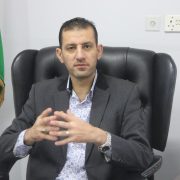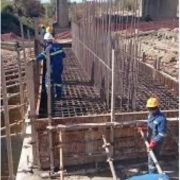The ongoing constitutional amendments which have been largely resisted by Zimbabweans are set to give the incumbent president so much power since the independence of the Republic
The amendments will cede power to the president and oversight that is meant for the judiciary and legislature, making him m the most powerful president on history
Zimbabwe is currently going through a defining moment with a strong political battle that can only be upset by a judiciary challenge
The proposed amendments cover a raft of changes, which include removing the clause of a president having running mates during elections, scrapping the process of public interviews in the selection of judges and the Prosecutor-General. Other proposed changes entail increasing the appointment of ministers outside parliament from the current five to seven, decoupling the Zimbabwe Electoral Commission’s delimitation function from the population census held every 10 years, and allowing judges of the Constitutional and Supreme courts to extend their tenure after reaching the age of 70 annually for up to five years, subject to a favourable medical report as to the mental and physical fitness of the judge to continue in office.
Everything a crocodile does whilst in the waters can never be trusted even by the largest of animals like elephants when they lower their trunks to quench their thirst. It is no coincidence President Mnangagwa is nicknamed the crocodile because of his great exploits in liberating Zimbabwe at one time as a member of the famous crocodile gang which almost got him hanged but being under age saved his life.This is because in the waters the crocodile can drown almost any animal nomatter the size. The same can be alluded to the recent amendments to the constitution seen as the crocodiles move to drown anything on its path.
They are contained in the Constitution Amendment (2) which was gazetted on December 31 last year The proposed amendments are most likely going to sail through as Zanu PF has a two-thirds majority in Parliament needed to pass the Constitution Amendment (2) Bill.However, the changes will give Mnangagwa more presidential powers in stark contrast to the 2013 constitution which sought to curtail executive overreach.
The removal of running mates, for instance, will mean the vice-presidents, who would have had a constitutional mandate by virtue of being elected, will now be confined to serving at the pleasure of the president.The removal of the clause makes the president the sole centre of power. This was a central theme during the tenure of the late former president Robert Mugabe which now continues under the septuagenarian leader.
The removing of the process of public interviews in the selection of judges and the Prosecutor-General, which was a key tenet of the 2013 constitution, is also seen as an attempt by Mnangagwa to reduce accountability that such public interviews bring and make the selection process opaque.This clause will also make the judiciary beholden to the executive and make a mockery of the principle of the separation of powers between the country’s two pillars.
Constitutional lawyers contacted by TechMag Tv said the proposed amendments work against the letter and spirit of the 2013 constitution.“The main reason in coming up with the new constitution in 2013 was because the President had too much power,” an anonymous lawyer said.
“The proposed changes want to give those powers which had been removed by the 2013 constitution back, which is not good. ”He pointed out that the clause he was most concerned about is the clause around the appointment of the Prosecutor-General which has the potential to make the PG’s Office pliant to the executive at the expense of justice.
The changes being proposed are being widely panned as they come before the process of aligning the laws to the 2013 Constitution has even been completed.
This was something pointed out by Mnangagwa’s former advisor and international trade lawyer, Petina Gappah.
“The problem of the proposed constitutional amendments is not that ED will have greater powers than Mugabe. This is hyperbolic propaganda,” Gappah wrote on microblogging site Twitter earlier in the year.
“The real problem is that it sets a dangerous precedent of changing a constitution that’s barely been implemented since it was approved. It’s also a spectacular own goal. For two years, the government has done nothing about constitutional/political reforms they promised. They have set themselves back on foreign policy aims, for example, rejoining the Commonwealth, deepening re-engagement”.
The decoupling of the Zimbabwe Electoral Commission delimitation function from the population census held every 10 years has also raised alarm.
The proposed removal of constitutional boundaries means that the process of delimitation will be subjected to all forms of manipulation in future elections which could give Zanu PF an unfair advantage over the opposition.
The proposed changes are anathema to the tenets of democracy and represent the shredding of the 2013 constitution, according to political analyst Eldred Masunungure.
“I have previously condemned the amendments. The more than 20 amendments are significant in that the accumulative impact is destruction of the democratic tenets worked on for years in the 2013 constitution,” Masunungure said.
“All these amendments will reduce the efforts made in the 2013 constitution to ashes. By and large they take away the democratic and progressive features of the constitution. They amount to regression which is astounding and shocking. This is worse than what we had under the Lancaster House Constitution.
In 37 years we had 19 amendments to the previous constitution. Now we are looking to have 27 changes in one scoop in only six or seven years after the new constitution was put in place. There is nothing more shocking.”
The clause to allow Supreme and Constitutional court judges to extend their tenure to 70 years and beyond has also raised eyebrows.According to Gappah, it sends a clear message that no one is good enough to be chief justice so the current one has to have the constitution amended to prolong his stay.
The proposed amendments should be taken to Zimbabweans and not be shrouded in secrecy, says political analyst Tawanda Zinyama.
“In my view, all amendments should be taken to the people through a referendum after extensive consultations with stakeholders but these amendments are being done secretly,” Zinyama said.
“The current crisis we face is because of issues of legitimacy. If we continue to have unprocedural processes, we are worsening our plight as Zimbabweans. There seems to be sinister intentions which are meant to give the incumbent an advantage over perceived opponents, which is not good.”PRESIDENT Emmerson Mnangagwa’s dictatorial tendencies and his power consolidation bid have been strengthened by the expected passing of Constitution of Zimbabwe Amendment (No. 2) Bill which allows him to concentrate power in his hands while undermining other arms of the state, such as the judiciary and the legislature.
The Bill will also allow him to extend Chief Justice Luke Malaba’s term beyond 70, enabling him to be in office during the 2023 elections when he might need him to superintend over any electoral challenges, like he did in 2018. In addition, the Bill allows him to remove the running mate close, helping him contain Vice-President Constantino Chiwenga, who in any case is already on the backfoot because of the incremental gains Mnangagwa has scored since the 2017 military coup which thrust him into power.
TechMag Tv investigations reveal that through the Bill, Mnangagwa has taken a step closer to fully consolidating power. “This is a giant step in his consolidation bid which has been on the agenda since the day he came into office. The Bill is significant and should be seen as part of the consolidation drive,” said an anonymous official. “It has been long in coming but it was all calculated. First it was managing Zanu PF dynamics by containing his deputy Chiwenga, by removing his key military backers from the army by, among other things, giving them diplomatic positions, removing commanders of the units which played prominent roles in the coup as they were seen as being loyal to Chiwenga. “He further consolidated by surrounding himself with his close friends and associates mostly from his ethnic Karanga clan and, of course, Covid-19 was helpful in his consolidation bid as it claimed the lives of Chiwenga’s closest allies from the military, Foreign Affairs minister Sibusiso Moyo and Agriculture minister Perrance Shiri.”
In a Constitution Watch bulletin, Veritas, a lawyers’ grouping with an interest in legal, constitutional and parliamentary issues, came to the conclusion that the Bill had “two primary interlinked aims, which are: to increase the Executive’s power, mostly at the expense of the other arms of government, namely Parliament and the Judiciary, and to concentrate that power in the person of the President.” Veritas also noted that the constitution should not be amended lightly and that the government had not given reasons for the Bill. “It has not even explained why any of the proposed amendments are necessary or desirable. The Bill’s memorandum does no more than state, very briefly, what the amendments will do but does not explain the reasons behind them. It is important that such an explanation should be given because section 328(4) of the Constitution requires Parliament to convene meetings at which members of the public can express their views on proposed constitutional amendments. How can members of the public formulate sensible views on the Bill, much less express them, if they do not know why the Bill has been put forward?” asked Veritas.
Below is an assessment of the Bill by Veritas: Themes of the Bill Increase in the power of the Executive The Executive and Parliament (a) Limiting Parliament’s power to veto loan agreements Clause 23 of the Bill, if proceeded with, will deprive Parliament of its right to approve or veto financing agreements entered into by the government with foreign entities such as banks. This right is essential for Parliament to oversee state revenues and expenditures in terms of section 299 of the constitution, and removing it would seriously diminish Parliament’s power vis-à-vis the executive. On 3 March, Justice minister Ziyambi Ziyambi indicated to the National Assembly that he does not intend to proceed with clause 23, but the clause remains part of the Bill.
The fact that he may withdraw the clause suggests it was not properly thought out in the first place ‒ in other words, there were no compelling reasons for it. (b) Extending provision for party-list members of assembly Extending the provision for 60 party-list women members of the National Assembly for another 10 years, and adding 10 party-list youth members to the National Assembly, will increase the number of parliamentarians on whom the government can rely on for support without significantly increasing the real power of women and youths in politics ‒ a goal which would be better achieved by appointing more women and youths as ministers and putting measures in place to ensure parties select more women and youths for election in constituencies.
The executive and the judiciary The Bill seeks to permit the President to promote judges of the High Court and the Supreme Court to a higher court on the recommendation of the Judicial Service Commission (JSC), without the need for public interviews, thereby opening the door to promotions on the basis of political suitability and cronyism. Allow judges of the Constitutional Court and the Supreme Court to continue to serve beyond the current retirement age of 70, if the President after consulting the JSC consents to their doing so. This will strip those judges of their security of tenure, hence their independence, since they will hold office from year to year subject to the President’s consent. The independence, impartiality and effectiveness of the courts are central to the rule of law and democratic governance.
Judicial officers must be independent and impartial, and must be perceived to be so by the general public. By increasing the President’s power over judges, the Bill will reduce their independence and their perceived impartiality. Retreat from devolution One of the principles of good governance, which itself is a founding value of our constitution, is the devolution and decentralisation of governmental power and functions [section 3(2)(l) of the Constitution]. Pursuant to this principle, chapter 14 of the constitution establishes provincial and metropolitan councils to further the social and economic development of Zimbabwe’s provinces. The Bill will reduce the size of councils by providing that members of Parliament will no longer be council members.
As stated in Constitution Watch 5/2020, this may improve the efficiency of the councils but it will make them less representative of the political leadership of their provinces. By making councils less influential, the Bill will correspondingly increase the influence and power of central government. Concentration of power in the President personally The second main theme of the Bill is to concentrate executive power in the person of the President. The President’s personal power will be increased in the following ways: Power to choose vice-presidents Starting from the election in 2023, presidential candidates will have to nominate two vice-presidential candidates to stand together with them as a team; if elected, the vice-presidents will have the same security of tenure as the President, that is, the President will not be able to dismiss them ‒ and succession in the event of the President’s ceasing to hold office will be fixed before the election.
The Bill seeks to preserve the system that is currently in force, under which the President chooses vice-presidents after his or her election and they hold office at the President’s pleasure. Obviously this will increase the President’s control over his vice-presidents. Appointment of non-parliamentary ministers The Bill seeks to allow the President to appoint up to seven ministers from outside Parliament. At present he can appoint only five. Increasing the number of non-parliamentary ministers will extend the President’s power to control his Cabinet as well as extending his powers of patronage.
Non-parliamentary Ministers, moreover, may not be amenable to attending Parliament and answering questions from parliamentarians. Appointment and dismissal of the Prosecutor-General At present, the procedures for appointing and dismissing the Prosecutor-General are the same as those for a judge. The Bill proposes to alter this by removing the need for public interviews of candidates before the President appoints a Prosecutor-General, and by giving the President the ultimate discretion to decide whether or not a Prosecutor-General should be dismissed. Once again, the President’s personal power will be increased.
It may be noted that in deciding on the appointment or dismissal of a Prosecutor-General the President will not have to act on the advice of his cabinet: section 110(2) (d) and (6) of the constitution. The proposed amendment will also, of course, decrease the Prosecutor-General’s independence, something on which great weight was put during the constitution-making process. Chief Secretary to the President and cabinet By making the Chief Secretary to the Office of the President and cabinet a constitutional office-holder, the Bill will increase his or her status and the already extensive influence of the President’s Office.
By giving the President, rather than the Civil Service Commission, power to fix the Chief Secretary’s salary and term of office, the Bill will once again increase the President’s personal power because he will not have to consult cabinet. Public Protector Here, too, the Bill will increase the President’s personal power by allowing him to appoint and dismiss the Public Protector after mere consultation (in this case with the Judicial Service Commission and Parliament’s Committee on Standing Rules and Orders). In other words, the office of Public Protector will be yet another office within the President’s gift. Conclusion The effect of the Bill will be to remove constitutional limits on the exercise of power by the executive and to concentrate that power in the central government and in the President personally. It would be an exaggeration to say that the Bill represents a wholesale assault on Zimbabwe’s democracy: it does not go that far. If enacted, however, it will amount to a chipping away at our constitutional democracy and will go some way towards restoring former president Robert Mugabe’s constitutional dictatorship.
The crocodile indeed has got his grip through this amendment and if not stopped will drown everything he seeks to vanquish









Comments